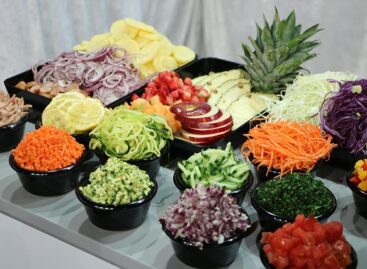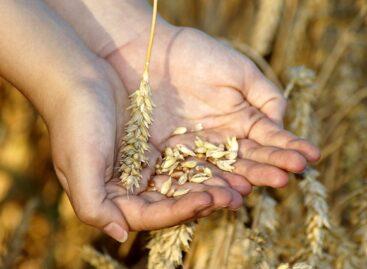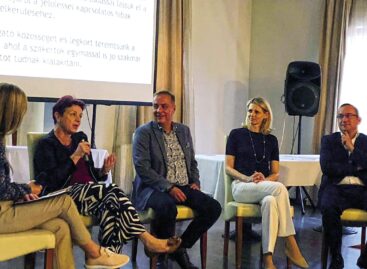The University of Debrecen is launching space gardening research
Hungarian peppers can also be grown in space if the University of Debrecen’s (DE) VEGBOX TS research is successfully completed, in which specialists will carry out a number of innovative space gardening developments and scientific experiments in the HUNOR-Hungarian Astronaut Program – it was announced at the press conference presenting the research on Thursday.

(Photo: Pixabay)
At the event, László Csernoch, the scientific vice chancellor of the University of Debrecen, the head of the space research program, highlighted that the university already had programs in the 70s that dealt with the processing of samples sent into space and returned to Earth. He added that the Faculty of Agriculture, Food Science and Environmental Management of the University of Debrecen has been running a breeding program for decades, as a result of which peppers bred at the university will be grown on the International Space Station, testing how suitable they are for growing in space. The center of the breeding program is a biotechnological greenhouse, the Biodrome, where peppers are grown under closed technologies. The plants that can go into space will come out of these, he added.
The space program takes research to a new level
Scientific deputy dean Szilvia Veres said that the agricultural faculty of the university was part of the DE-SPACE space program with a space food group, in which they conducted a lot of research related to crop cultivation. He elaborated on the fact that the cultivation was basically carried out in external areas until now, but in the space research program it was possible to test the complex research infrastructure and human resources in closed system plant cultivation. He also talked about wanting to involve a wide range of specialists in the research: physicists, biologists, and doctors.
Hungarian peppers can grow in space
Miklós Fári, coordinator of the research, professor emeritus of the University of Debrecen, emphasized: the primary goal of the program was to breed peppers that can grow in space conditions, in microgravity, or even in zero gravity. He called it important that all parts of the Hungarian space pepper can be used: its leaves are also suitable for human consumption, and its stems can feed insects. The coordinator of the research said that the aim of the program is also to test seed pretreatment, seedling raising and cultivation technologies, as well as the development of green biomass cultivation suitable for space biological processing.
MTI
Related news
Related news
The Store of the Future opens again at the SIRHA Budapest exhibition! (Part 3)
🎧 Hallgasd a cikket: Lejátszás Szünet Folytatás Leállítás Nyelv: Auto…
Read more >New country director at the helm of JYSK Hungary
🎧 Hallgasd a cikket: Lejátszás Szünet Folytatás Leállítás Nyelv: Auto…
Read more >







